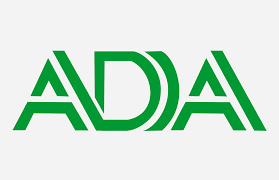New ADA Campaign Aims to Connect Patients with Dentists
Patients' busy lives often lead them to neglect to schedule regular dental visits. The American Dental Association hopes to change that with their new campaign, a digital effort to target more than 19 million potential patients and connect them with dentists. Continue below to find out more about the campaign,

Though many people understand the importance of dental care, they often feel they have no time to visit a dentist.
In a new effort to connect American adults with dentists around the country, the American Dental Association (ADA) has launched a new digital campaign to encourage regular dental visits.
New online advertisements can be viewed through a mixture of Facebook posts, animated display advertising and search advertising. Those that click on the ads will be sent to the ADA’s Find-a-Dentist online search tool, which allows users to enter their address or zip code, the distance they’d travel to see a dentist, the dental specialty they require and even a specific dentist’s name. People who visit the site can also learn more about important oral health issues, and dentists can update their ADA member profiles to help patients find them more easily.
RELATED: More Coverage on
- Openings in Your Schedule? Here's Why
- Reach Millennial Parents to Maximize Pediatric Dental Treatment
- From Accounting to Dentistry, Prosthodontist Benefits from Business Acumen
Using the tagline “your teeth are amazing,” the ADA hopes the campaign will emphasize how vital it is for people to take care of their teeth. It is anticipated that this targeted effort will reach up to 19.6 million prospective new patients, allowing them to easily connect with the more than 161,000 ADA member dentists.
“ADA dentists make a substantial impact on the health and well-being of their communities,” Joseph P. Crowley, ADA President-elect, says. “Our research indicated that many people understand the importance of regular dental visits, but their busy lives get in the way of scheduling an appointment. This campaign reminds them that seeing a dentist is an important part of taking care of their teeth.”
The new campaign is the first phase in a larger, three-year initiative projected to cost around $18 million. It was approved during the 2016 ADA annual meeting after a review of research insights from the ADA health policy institute. Data collected from a study identifying prospective patients who were most likely to seek out dental care was also included.
ACTIVA BioACTIVE Bulk Flow Marks Pulpdent’s First Major Product Release in 4 Years
December 12th 2024Next-generation bulk-fill dental restorative raises the standard of care for bulk-fill procedures by providing natural remineralization support, while also overcoming current bulk-fill limitations.